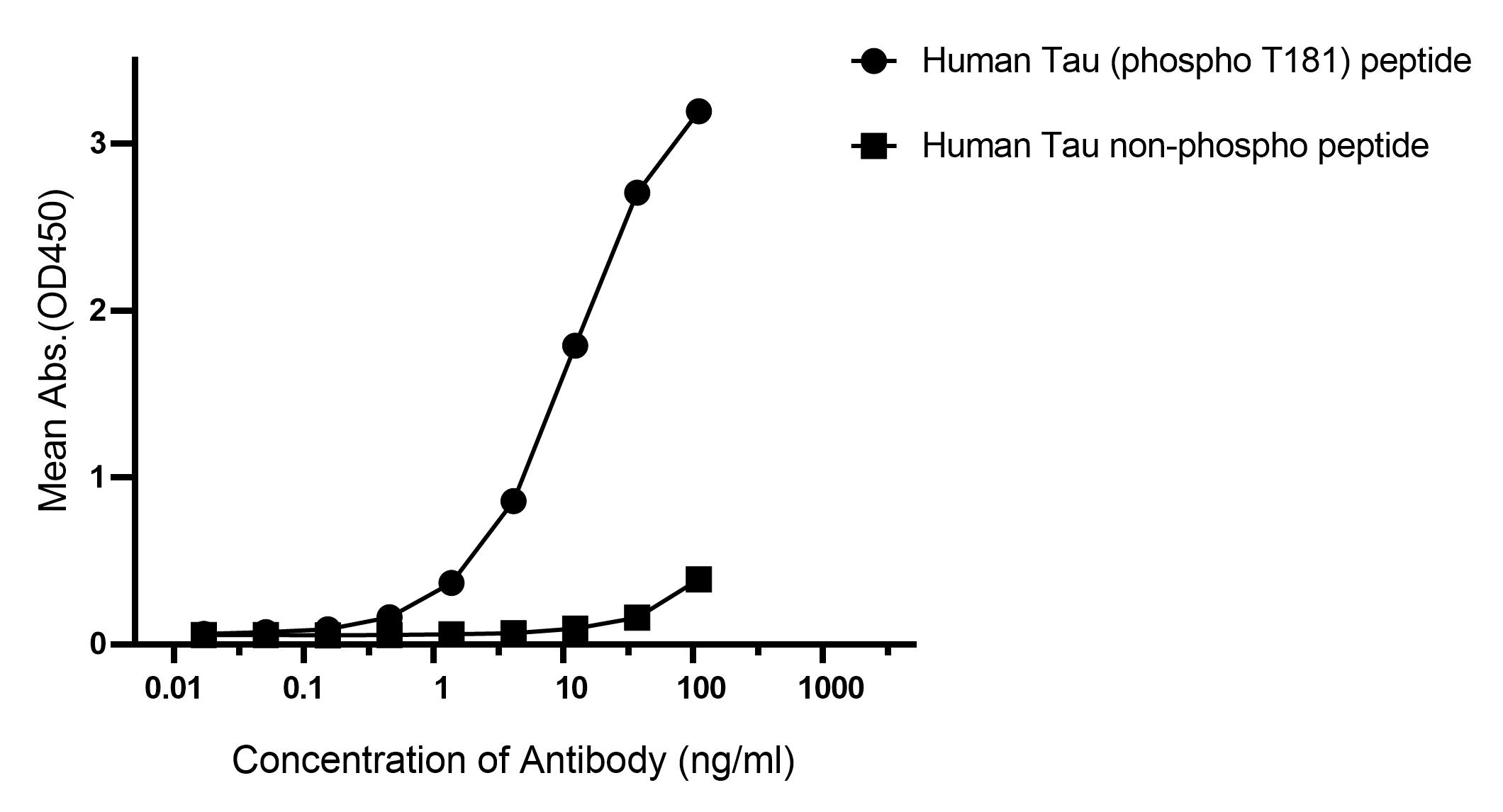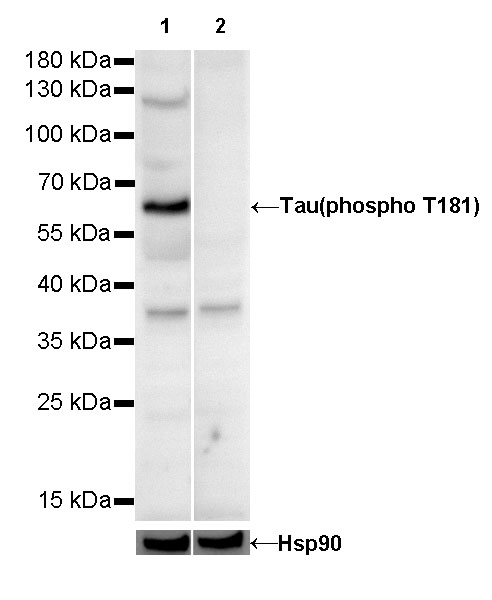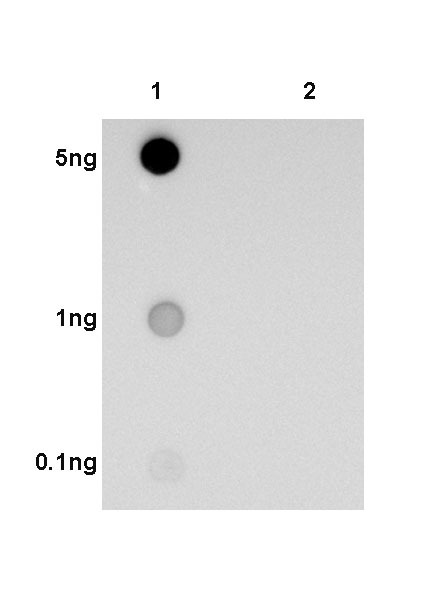



产品介绍 FAQs 评论(0)
宿主来源
Rabbit抗原名称
Tau (phospho T181)分子别名
p-Tau181, phospho T181免疫原
N/A细胞定位
Secreted, CytoskeletonAccession
P10636克隆号
SDT-R045抗体类型
Rabbit mAb应用
ELISA ,WB反应种属 ?
Ms纯化方式
Protein A浓度
0.5 mg/ml性状
Liquid缓冲体系
PBS, 40% Glycerol, 0.05%BSA, 0.03% Proclin 300储存条件
12 months from date of receipt / reconstitution, -20 °C as supplied
| 应用 | 稀释度 |
|---|---|
| WB | 1:1000 |
| ELISA | 5ng/ml-100ng/ml |
Accumulation of intraneuronal neurofibrillary tangles (NFTs) containing paired helical filaments (PHFs) of the microtubule-associated protein tau is one of the defining neuropathological hallmarks of Alzheimer’s disease (AD). The tau protein has an N-terminal projection domain, a proline-rich region, a repeat region, and a C-terminal domain, with multiple potential phosphorylation sites along all regions. Studies using preparations of PHFs and immunohistochemical staining of postmortem brain tissue with specific tau antibodies established that PHF tau is hyperphosphorylated. High levels of p-tau and total tau (t-tau) have consistently been found in cerebrospinal fluid (CSF) of AD patients5. However, while CSF t-tau is considered a non-specific biomarker of neuronal injury, p-tau may reflect AD-related tau pathology in the brain. The vast majority of CSF studies have used immunoassays detecting tau phosphorylated at threonine (Thr) 181 (p-tau181). During the last 2 decades, CSF p-tau181 together with total tau (t-tau) and amyloid-β 42 (Aβ42) have been extensively validated as biomarkers of AD and are currently widely used as diagnostic criteria in research studies, in clinical practice in some countries, and for patient selection in clinical trials. CSF p-tau181 (alone or in combination with Aβ42) accurately differentiates AD from controls and predicts cognitive decline in preclinical and prodromal disease stages. CSF p-tau181 levels are higher in AD compared with other tauopathies including frontotemporal dementia (FTD), progressive supranuclear palsy (PSP) and corticobasal degeneration (CBD) and, hence, CSF p-tau181 has also been proven useful in differential diagnosis of dementia.
验证数据

Indirect ELISA antibody dose-response curve using Human Tau non-phospho and Human Tau phospho T181 peptides. Peptide concentration was 500 ng/mL. Tau (phospho T181) Recombinant Rabbit mAb was added at 0-100 ng/mL. Samples were incubated with Peroxidase-AffiniPure Goat Anti-Rabbit IgG (H+L) secondary antibody at 1/10000 dilution.
免疫印迹

WB result of Tau(phospho T181) Rabbit mAb
Primary antibody: Tau(phospho T181) Rabbit mAb at 1/1000 dilution
Lane 1: old mouse brain lysate 20 µg
Lane 2: old mouse brain lysate(phosphatase treated) 20 µgSecondary antibody: Goat Anti-Rabbit IgG, (H+L), HRP conjugated at 1/10000 dilution
Predicted MW: 50~70 kDa
Observed MW: 63 kDa
Exposure time: 60s
斑点杂交

Dot blot result of Tau(phospho T181) Rabbit mAb
Lane 1: Tau phospho T181 peptide
Lane 2: Tau non-phospho T181 peptide
Primary antibody: Tau(phospho T181) Rabbit mAb at 1/1000 dilution
Secondary antibody: Goat Anti-Rabbit IgG, (H+L), HRP conjugated at 1/10000 dilution
Exposure time: 20s
-
斯达特公司的抗体,可以回收利用几次?
-
检测磷酸化蛋白时,推荐有什么封闭体系?


 申请试用
申请试用 
评论(0)